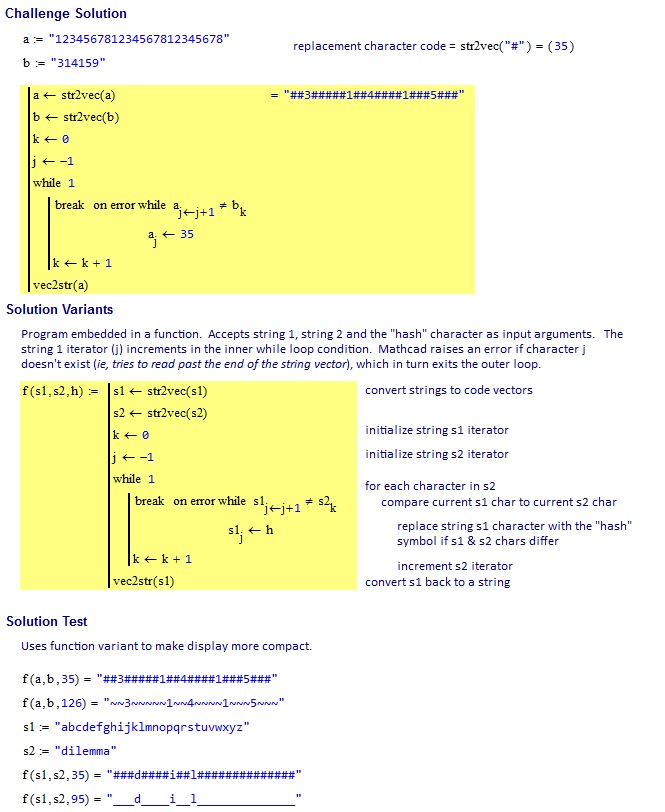Your task is to write a program that will filter out some characters in a string, so that the remaining spells out (part of) the other string.
Let's say we received the string "123456781234567812345678", and the second string is "314159".
First, we put a pointer on the second string:
314159
^
So the pointer is now on 3, and we replace the not-3 characters with a hashtag until the first 3:
##3456781234567812345678
We then move the pointer to the next character until we have iterated through the string.
Specs
- You may use any character to replace "#", and the first string will not contain the hashtag (or the replaced hashtag).
- The second string will always be longer than enough.
- Both strings will only contain ASCII printable characters (U+0020-U+007F).
Testcases
input1: 123456781234567812345678
input2: 314159
output: ##3#####1##4####1###5###
input1: abcdefghijklmnopqrstuvwxyz
input2: dilemma
output: ###d####i##l##############

